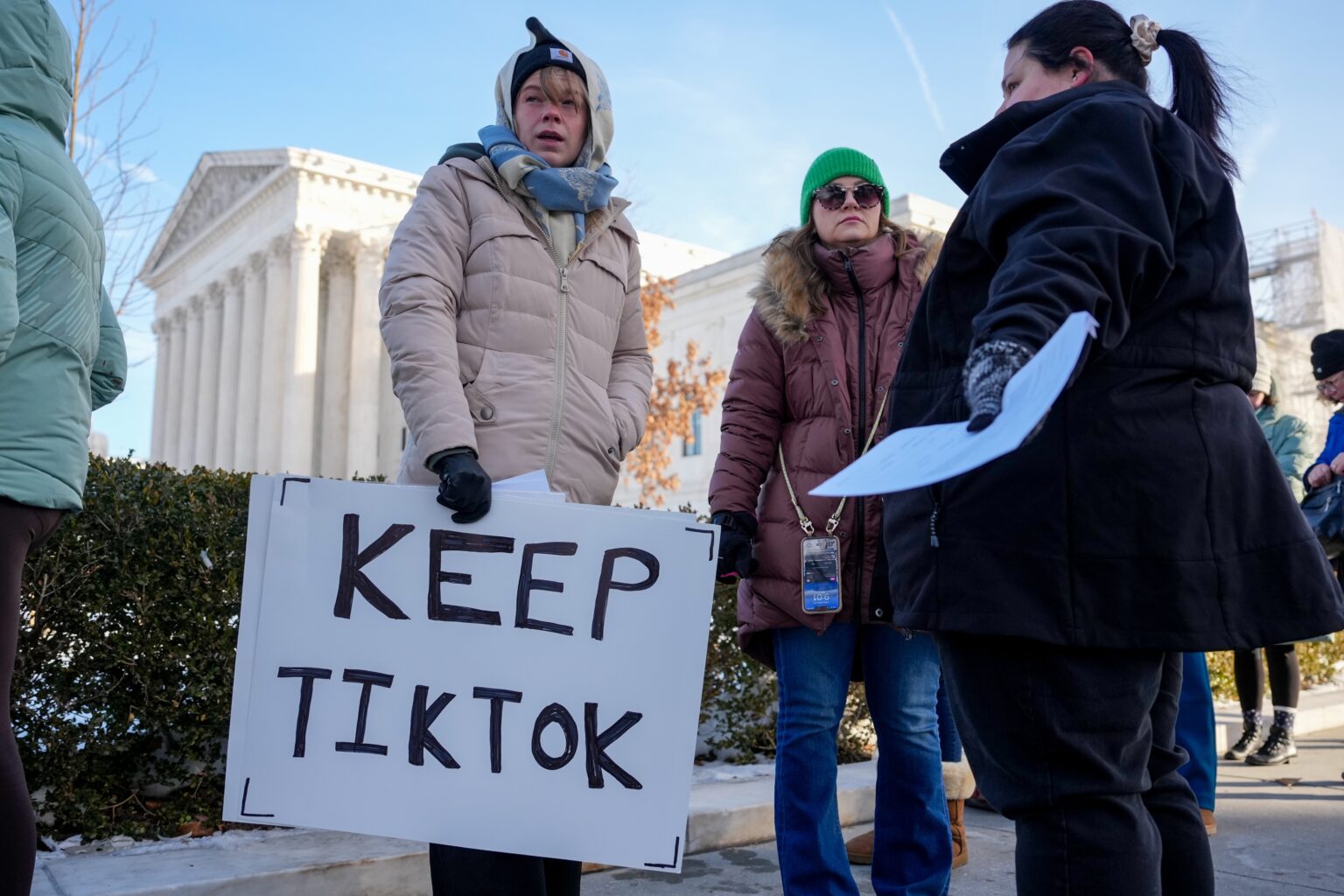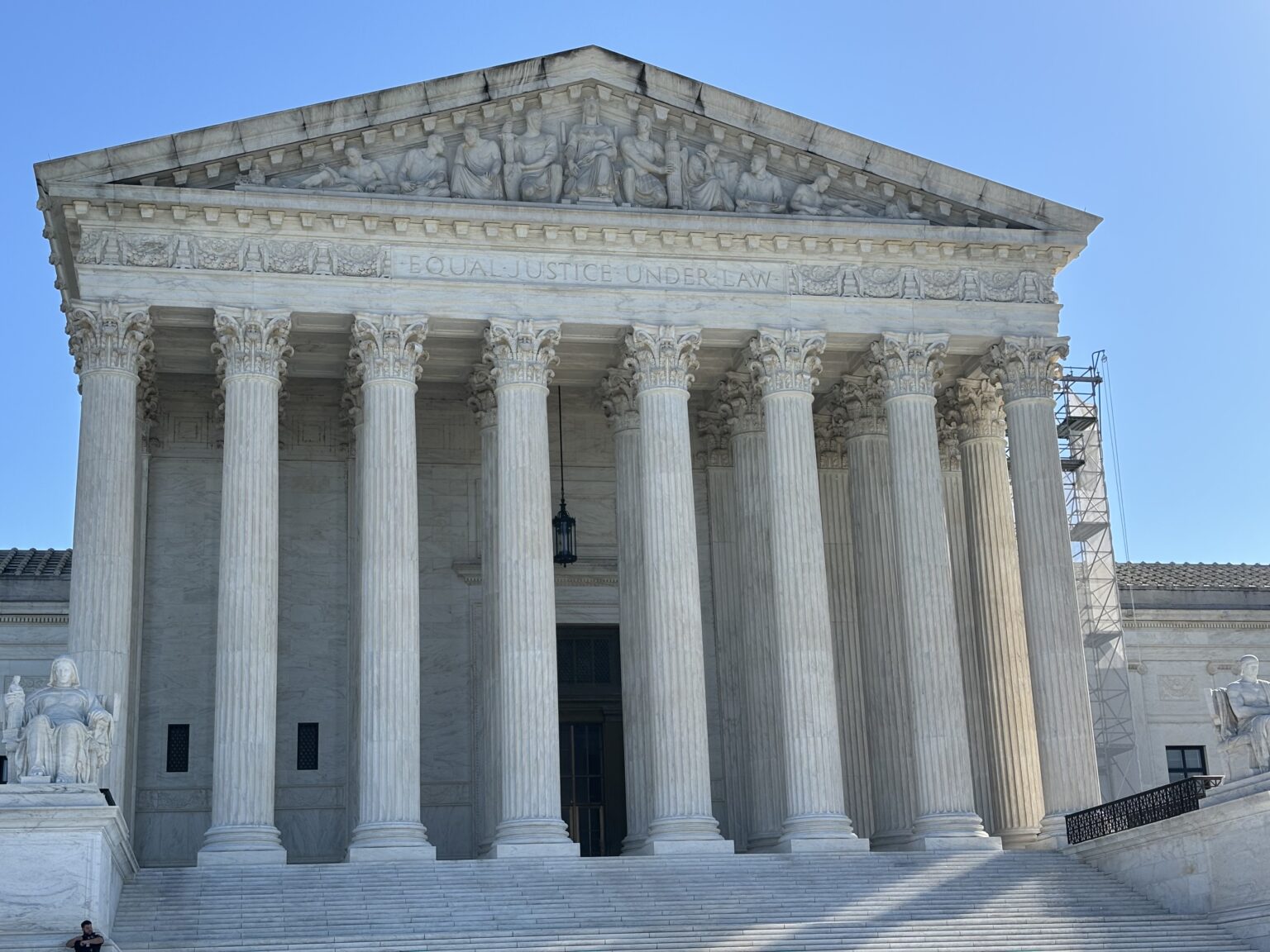Justices of the U.S. Supreme Court asked Friday why they should step in and stop a regulation that would force TikTok to be sold in nine days, claiming that the Chinese parent firm of the short-form video platform does not have First Amendment rights.
Justices on both sides of the court’s ideological divide questioned attorneys for ByteDance, the parent firm of TikTok, and a group of the platform’s users on how any entity other than ByteDance would have its rights restricted.
The highly popular site will be removed from US app stores if ByteDance doesn’t divest TikTok by January 19 in accordance with the bipartisan law signed into law by President Joe Biden and supported by Congress.
The algorithm that determines what TikTok users see is protected by intellectual property rights owned by ByteDance. TikTok claimed the proprietary algorithm constituted a form of speech and would lose it if it were separated from the parent corporation as required by law.
However, the justices proposed that ByteDance would be the sole party directly impacted by the statute because it is a foreign firm and does not have the presumption of First Amendment rights.
Chief Justice John Roberts stated that the statute targets the Chinese Communist Party’s ownership and possible control of the platform, including its access to user data. The Chinese government is classified as a foreign foe by the law.
Roberts, a member of the court’s conservative majority, stated that Congress doesn’t care about what is posted on TikTok or the expression. The remedy demonstrates this: They are not stating that TikTok must cease operations. They are arguing that TikTok should no longer be controlled by the Chinese, since it isn’t a direct hindrance to free speech.
Because ByteDance is subject to Chinese national security legislation that can require corporations to turn over data at any time, lawmakers warned the platform was risky during the law’s debate.
The ultimate parent is actually susceptible to performing espionage work for the Chinese government; are we to overlook this? Roberts stated.
Democratic President Barack Obama’s nominee, Justice Elena Kagan, added that ByteDance, not its U.S.-based business, would be the primary target of the statute. “TikTok would be free to pursue its own algorithm to compete with Meta’s Instagram and other video-based social media if it were separated from its Chinese parent company,” she said.
According to Kagan, the Act just instructs this foreign corporation to divest or otherwise, leaving TikTok free to do what any other player in the US can do: select the best algorithm available.
The law’s real goal, according to Noel Francisco, who represented TikTok and ByteDance, was to prevent the Chinese government from manipulating content, which he claimed amounted to censorship in violation of the Constitution.
Francisco claimed that the speech itself is the true goal of the administration, which fears that even well-informed Americans could be swayed by false information from China. However, the First Amendment gives the people the power to decide that.
Francisco said that TikTok, one of the biggest speaking platforms in America with over 170 million users, would be shut down as a result of the bill.
Noting that the government’s national security case conjectured that TikTok could be used to misinform Americans, he asked the court to examine whether the speech restriction was content-based, which he concluded it was.
According to him, the singling out of TikTok poses a unique challenge.
According to the law, there is one speaker about whom we are very worried, and we will emphasize that point, he stated. They are targeting that speaker in part because they are concerned about the platform’s future content and the possibility that it would eventually be critical of the US or threaten democracy.
According to Jeffrey Fisher, a lawyer for TikTok artists, the government’s claim that TikTok users were susceptible to being forced to consume information that had been sanctioned by China was not supported by the First Amendment.
They use terms like that in their brief, which argues that if TikTok content is anti-democracy and erodes confidence in our leaders, then our national security is at risk, Fisher said. The entire conduct is tainted by that illegal government interest. That kind of unlawful motivation renders the law unconstitutional.
After the hearing, attorneys for TikTok and a number of creators said they were confident in their case.
The argument went really well, in our opinion, and the judges are highly attentive. Francisco stated at the National Press Club on Friday afternoon that they are fully aware of the significance of this issue, not only for the American people in this nation but also for First Amendment law in general and everyone’s rights.
Francisco also defended ByteDance’s ownership structure, stating that although a Chinese national residing in Singapore owns 21% of the company, it is a Cayman Islands-incorporated business that is not owned by China. Francisco added that servers in Virginia house TikTok’s algorithm source code.
Three TikTok users talked about how their presence on the app has helped them create a living.
Following a job loss and challenging family circumstances, Chloe Joy Sexton of Memphis, Tennessee, claimed that TikTok helped her launch her baking business.
I have now published a cookbook and shipped thousands of cookies worldwide. Since I’m a tiny firm with little funding, TikTok is my main source of product marketing. “It would be an understatement to say that TikTok changed my life,” Sexton remarked.


